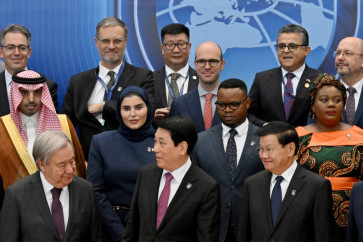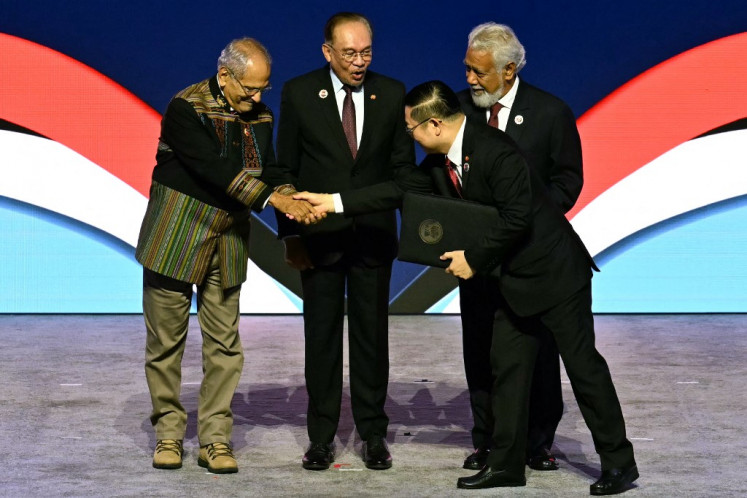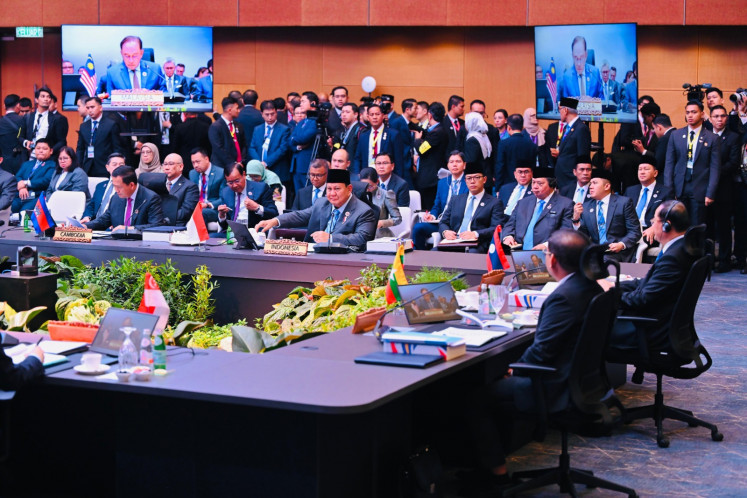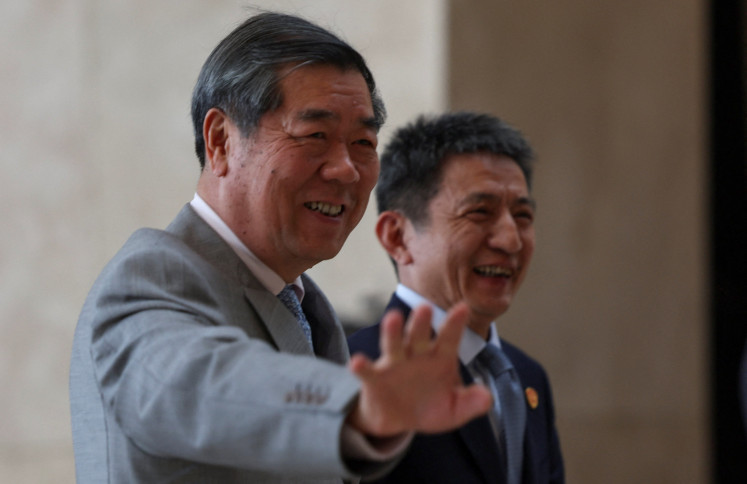Popular Reads
Top Results
Can't find what you're looking for?
View all search resultsPopular Reads
Top Results
Can't find what you're looking for?
View all search resultsJokowi inspires urban poor to see light at the end of the tunnel
Urban Poor Consortium (UPC) has praised the humane approach taken by Governor Joko “Jokowi” Widodo to settle the problem of illegal squatters
Change text size
Gift Premium Articles
to Anyone
U
rban Poor Consortium (UPC) has praised the humane approach taken by Governor Joko “Jokowi” Widodo to settle the problem of illegal squatters.
UPC head Wardah Hafidz said people living in Muara Baru, North Jakarta, who did not want to be relocated to low-cost apartments in Marunda, did not feel the need to stage protests because they were able to reach out to Jokowi and discuss alternative solutions.
“His approach differs from that of Sutiyoso or Fauzi Bowo,” she told The Jakarta Post, referring to the former governors.
“We only waited for 15 minutes to meet with Jokowi at his official home. He told us to look for land around the area that could be bought by the city, which could later be procured by the people.”
She was speaking after a discussion on urban poverty held by the Rujak Center of Urban Studies at Institute Français Indonesia (IFI) in Central Jakarta on Saturday.
Wardah said most Muara Baru residents earned a living in the fish market, thus the relocation would cost them their jobs.
UPC, together with Jaringan Rakyat Miskin Kota or JRMK (The Network of Urban Poor Residents) and the Rujak Center, will gather data on squatters in Muara Angke to see their numbers, jobs and distance to their workplaces.
They are welcoming volunteers as there is an estimated 17,000 families.
The data is expected to be ready before Feb. 28, when they are scheduled to meet with Jokowi.
Wardah said that during their respective administrations, former governors Sutiyoso and Fauzi Bowo both failed to respond to letters UPC sent, which forced it to stage protests in front of City Hall.
“One time when we almost trampled the gate before a city representative finally showed up,” she said.
“Usually, a Public Order Agency officer who thought of us as troublemakers would be sent over to talk to us,” she said, adding that other times they were just ignored.
Eci Kusumawati, a squatter living on the banks of the Pluit Dam in North Jakarta, said that what they needed was for the administration to inform them of their rights and the laws.
“We want to be treated like human beings,” she said.
“Living in low-cost apartments will only make us poorer because we’ll have to pay rent.”
UPC also warns that ignoring poverty can create social unrest and rising crimes.
“The poor are distressed with their financial situation and are frustrated, which may force them to commit street crimes,” Wardah said.
“Rich people who may not care about them will feel unsafe.”
She said that the efforts to eradicate poverty should come from within the poor communities and from interaction with the wealthy.
The Jakarta chapter of the Central Statistic Agency (BPS) recorded that in 2010 there was a 4.04 percent poverty level in the capital city, an increase from 3.80 percent in the previous year.
The poverty level in the Thousand Islands regency had reached 13.07 percent, followed by North Jakarta municipality with 5.62 percent.
The poverty level benchmark in the capital city is based on people who have an average expenditure per capita below the poverty line of Rp 338,700 (US$35) per month.










